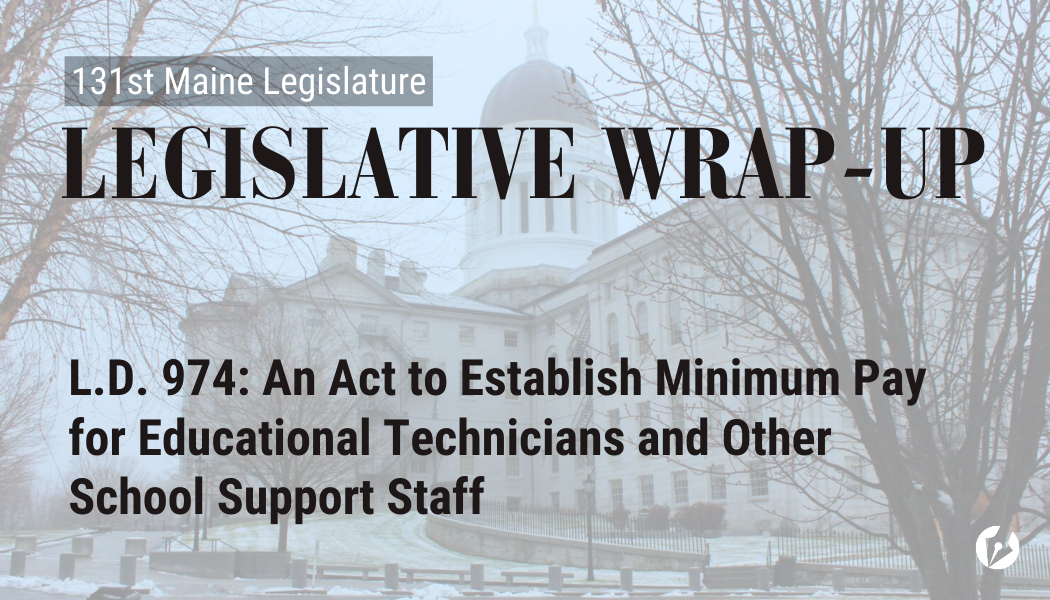This bill would increase minimum wages for school support staff such as education technicians, who help plan lessons and teach small groups of students, as well as bus drivers, custodians and food service workers.
The bill passed the House with an 89-58 vote earlier this month, and is on the appropriations table.
At the beginning of the 2025-26 school year, the minimum hourly wage for educational technicians would be 150 percent of the state minimum hourly wage, and the minimum hourly wage for other school support staff would be 125 percent.
Data compiled by the Maine Education Association in March shows that as of the 2023-24 school year, dozens of Maine districts offered minimum wages for ed techs and other support staff that did not meet the current state minimum wage of $14.15 per hour, which went into effect Jan. 1.
Educators testified in support of the bill, linking low pay to staffing shortages.
The Maine School Management Association, meanwhile, said increasing wages for support staff would strain school budgets.
Read the full bill on the legislature’s website.
Here are some excerpts from testimony:
For:
“I have personally witnessed our (education support professional) teammates leaving our school at unprecedented rates. Simply put, education support professionals cannot afford to stay working in the jobs they love, building relationships with students.” ~ Emily Albee, Orono
“At some point we as a society have allowed ourselves to decide that their important work is somehow less worthy of compensation. We haven’t valued their contributions to our educational system highly enough to even give them the means to subsist. We need to change that.” ~ Rick Beaulé, Lisbon
“When you have support staff that are so overworked because we are so underpaid, how can it not affect our students? How can we possibly put our best face forward when we are so often exhausted, physically and mentally?” ~ Heather Gilchrest, York
Against:
“If the increases in salaries fall on the taxpayers, we worry that budgets will not pass and that will have a negative impact on the services we need to provide to our students.” ~ Steven Bailey, Maine School Management Association







